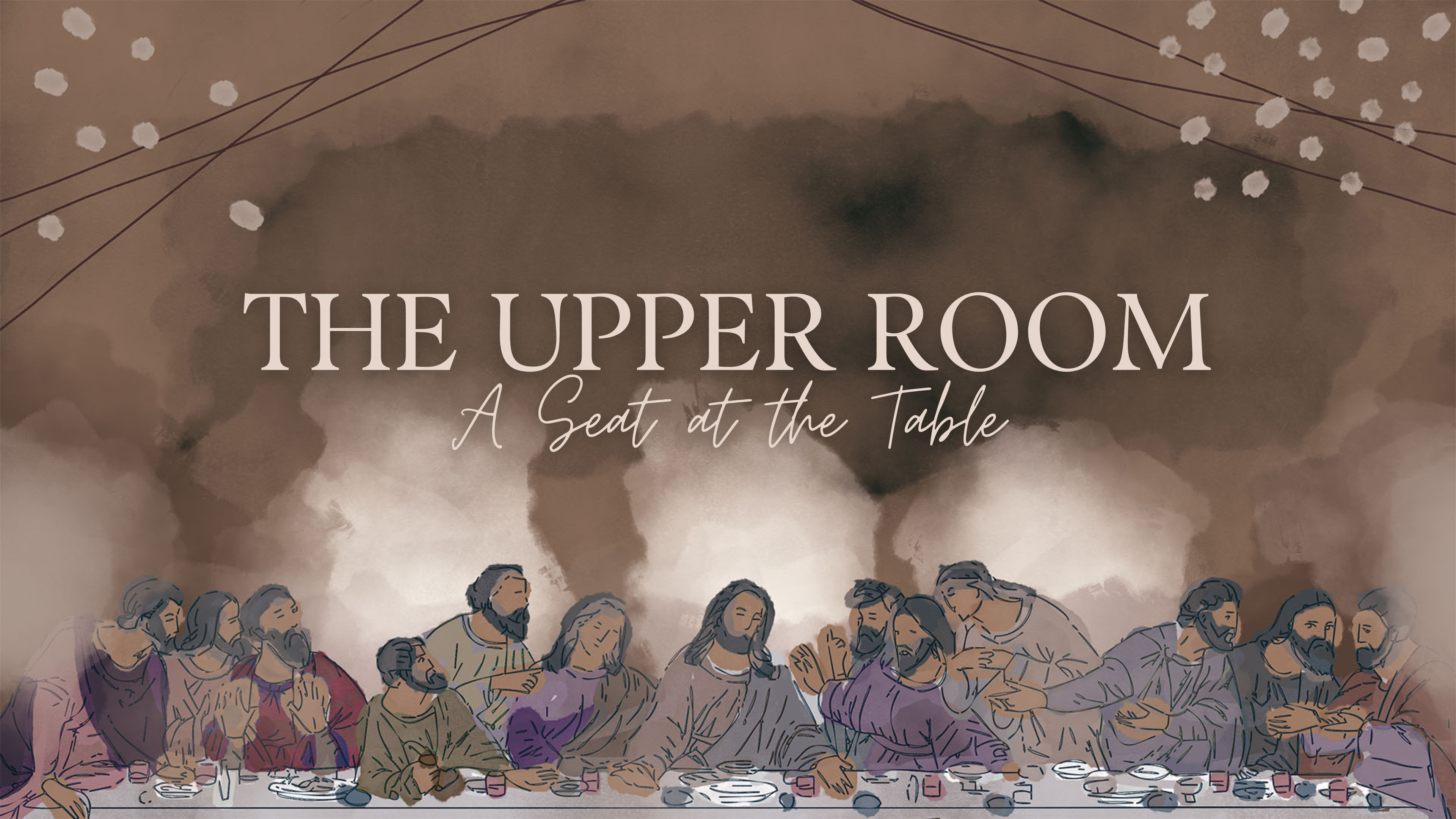The Upper Room: A Seat at the Table – John 13-17
Knowing the time was fast approaching for Jesus to depart this world He spent His final hours with His closest friends gathered around a table in the upper room. This was more than a meal. It was a teaching moment of great importance to them…and to us. As the disciples sat with Jesus, unaware of what would soon take place, Jesus served them, taught them, and prayed for them. We are going to pull up a seat at that table and let Jesus teach and disciple us as well.
Week 3: Judas and Peter Judas Iscariot is a sad tale that ends in his destruction but even his betrayal of Jesus leads to Jesus’ mission of the cross and His victory of the resurrection. Comparing and contrasting Peter and Judas we see 2 responses to what Jesus was doing and 2 responses when they both failed. We see the difference is failure isn’t final when grace gets the last word.
DISCUSSION/REFLECTION QUESTIONS:
- Who is someone who has been a role model for you in faith? How and why?
- How do you respond when you are “troubled” and life seems chaotic and out of control?
- READ: John 13:18-30
Spend some time SOAPing this passage. You can either spend time SOAPing individually and documenting for a several minutes and then spend time sharing with each -OR- SOAP in real time with each other. Either way make as many observations as you can.
OBSERVATIONS: What are the things that stand out to you about this passage?
- Why do you think Jesus would invite a betrayer into his inner circle?
- Judas took the bread that Jesus offered to him and left that night to betray Jesus. Why is it significant that Jesus offered Judas bread instead of singling Him out in front of everyone?
- Does the idea of receiving something from Jesus without honoring Him in response resonate? Do you believe Judas could have chosen a different response?
- John 13:21 tells us that Jesus was “troubled” and He “testified”. What does that verse tell you about Jesus? What does that tell us about how we handle our troubled moments?
- “Jesus knows what betrayal feels like.” Have you been betrayed by a very close friend of family member? Or have you ever betrayed a close friend of family member? What did you learn about Jesus in that wake of that experience?
- “Judas looked and sounded authentic but he wasn’t.” How often do you ask God to search your heart for evidences of authentic faith in him? What does he reveal? How would you describe what an authentic faith in Jesus looks like?
- “When evil is playing checkers, Jesus is playing chess.” Evil makes obvious moves in this world, Jesus makes strategic ones to bring about good. Do you choose to praise Him in the midst of the dark night? What do those sacrifices of praise look like?
- Doug talked about both Peter and Judas questioned Jesus and pushed back against Him and both ended up failing him in significant ways, but Peter and Judas had very different responses to failure and different paths forward in their stories.
- READ: 2 Corinthians 7:10.
What is the difference between “worldly sorrow” and “godly sorrow”? What else stood out from this week’s sermon?
- What is your big takeaway from this week’s sermon?
NEXT STEPS:
Everyone has a next step to apply what we have learned. What is your next step? Be specific.
MEMORY VERSE: *Challenge yourself or your group to commit this verse to memory:
2 Corinthians 7:10 “Godly sorrow brings repentance that leads to salvation and leaves no regret, but worldly sorrow brings death.”
PRAYER:
Spend some time praying for each other.
Scripture References:
John 13:1-17, 18-30; John 12:4-6; John 18:1-11; Luke 22; Matthew 27:1-5; Acts 1:18; 2 Corinthians 7:10

